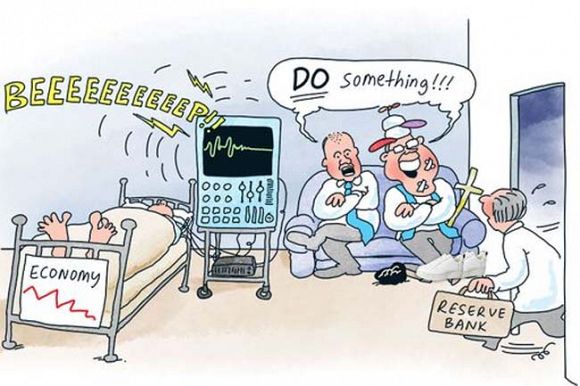The steady decay in Australia’s wealth generation capacity continued throughout the Liberal National period, as Alan Austin reports.
*Also listen to the audio version of this article on Spotify HERE.
THE THREE COUNTRIES that lost the most wealth per person through 2022 were Sweden, New Zealand and Australia. That’s according to the 2023 global wealth report released last week by the research division of the Swiss-based financial giant, Credit Suisse.
Australia was not alone in experiencing a reduction in average wealth, but it was a shock to observers to see how far Australia went backwards in just one year.
The report assessed Australia’s average wealth per person in 2021 at US$554,480 (AU$866,570). Its 2022 level of US$496,819 (AU$776,455) was a thumping AU$90,000 lower. Only New Zealand and Sweden experienced deeper reductions in average wealth per person last year. See Credit Suisse’s chart below.

The yearly report is accompanied by a 158-page global wealth databook containing detailed information on shifts in wealth since 2000 for 164 countries. This data provides the wealth component for the annual IAREM – which will be published here later this year – and for other analyses from time to time.
Sweden and other northern European nations at least have the excuse of having been impacted more severely than most countries by the conflict in Ukraine. Australia has no excuse. That its economy went backwards so badly in one year with export volumes and prices at record highs testifies to the singular incompetence of the Morrison Coalition Government which lost office in May last year.
International progress stymied
The global recovery from the COVID recession faltered in 2022, as inflation surged and trade was disrupted by the conflict in Ukraine. Some economies still fared quite well, others muddled through while many struggled badly.
Aggregate global wealth totalled US$454.4 trillion (AU$709 trillion) at the end of the year, down US$11.3 trillion (AU$17.6 trillion) or 2.4% over the 12-month period. Wealth per adult fell by 3.6% to US$84,718 (AU$132,300).
As all values are shown in U.S. dollars at current exchange rates, losses are exaggerated for the many countries whose currency depreciated against the U.S. dollar in 2022.
Australia had a mixed year, reflecting the transition from an extremely poor government – some say the worst at economic management in the OECD – to one now steering a strong recovery effectively.
Australia's slide down the global rankings continued
Australia’s mean wealth ranking has now fallen to fifth in the world at US$496,819 (AU$844,032), behind Hong Kong, Iceland, Switzerland and the USA (table 2-2). That is the lowest ranking since 2008, when Labor’s economic reforms were introduced. Australia maintained an impressive second place from 2009 to 2014, behind only Switzerland.
Australia’s GDP per adult recovered in 2022 to US$89,417 (AU$137,939), up from a dismal US$85,678 (AU$132,185) the previous year. That still compares poorly with the recovery period following the Global Financial Crisis from 2013 to 2016 when GDP per adult stayed above US$93,000 (AU$143,482).
Share of wealth going to the top ten per cent
The top wealth brackets continued to grow their unfair share of the national pie, a pattern established immediately after the Coalition replaced Labor in 2013.
As the chart below shows, the share of the nation’s wealth held by the bottom 90% of the population has tumbled from 55.1% in 2012 to just 47.6% last year. The richest 10% of the population have gained commensurately, with the top 1% benefiting most of all.

The observation that the top 5% and 1% did not change in 2022 may signal the trend through the Coalition years of shifting wealth and income towards the top end is finished.
Gini coefficient
This score out of 100 measures the fairness of the distribution of wealth in any nation. A coefficient of zero expresses perfect equality, where everyone has the same wealth. A score of 100 reflects maximum inequality. Thus, the lower the better, if we value equality.
In 2022, the countries with the best equality – that is, the lowest Gini scores – included Belgium, Malta, Qatar and Slovakia, Slovenia — all below 61 (table 3-1).
Nations with the worst inequality – with scores above 88 – included Brazil, Brunei, Papua New Guinea, Yemen and South Africa.
Australia’s 2022 Gini coefficient was 66.3, up from 66.2 the year before, continuing the worsening trend since 2013 onwards, when the score was just 63.6.
Positive future outlook
Despite the dismal results for many countries in 2022, the authors of Credit Suisse’s report remain optimistic.
They project that global wealth will rise by 38% over the next five years, with low and middle-income countries expected to achieve 56% of that growth, although accounting for just 31% of wealth currently:
‘Growth by middle-income countries will be the primary driver of global trends. Wealth per adult looks set to increase by 30%, reaching US$110,270 in 2027.’
The authors are also upbeat about shifts in wealth distribution:
‘At the beginning of the century, 81% of global adults had wealth below US$10,000. The proportion of adults in this bottom wealth stratum has been shrinking ever since. Our projections suggest that it will continue to fall from 53% in 2022 to 47% in 2027.’
Australians can be optimistic that the years of incompetent management are finally over. As we have seen recently, steady progress is now being made on economic growth, technology, employment, skilled migration, housing, tax evasion, overseas students and enabling people with disabilities.
Next year’s wealth report, along with all future economic assessments, will be examined with considerable interest.
*This article is also available on audio here:
Alan Austin is an Independent Australia columnist and freelance journalist. You can follow him on Twitter @alanaustin001.
Related Articles
- Calculating the final toll of preventable Coalition construction deaths
- New Parliament, new Coalition leaders, same old lies
- Calculating the cost of Coalition corruption
- Circus clowns continue covering up Coalition crimes
- CARTOONS: Peter's policy prognosis
 This work is licensed under a Creative Commons Attribution-NonCommercial-NoDerivs 3.0 Australia License
This work is licensed under a Creative Commons Attribution-NonCommercial-NoDerivs 3.0 Australia License
Support independent journalism Subscribe to IA.














